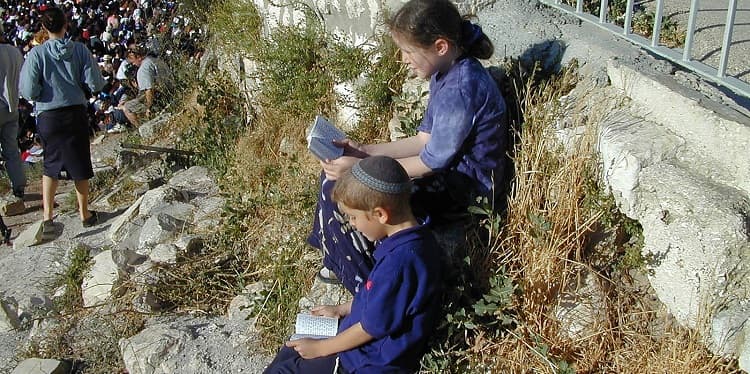Prayer Is the Answer
The Fellowship | August 20, 2019

Hannah was praying in her heart, and her lips were moving but her voice was not heard. Eli thought she was drunk and said to her, “How long are you going to stay drunk? Put away your wine.”
“Not so, my lord,” Hannah replied, “I am a woman who is deeply troubled. I have not been drinking wine or beer; I was pouring out my soul to the LORD.” — 1 Samuel 1:13–15
Prayer in Judaism is defined as “the work of the heart,” which profoundly changes the nature of prayer from one of entreating God to an act that transforms who we are – not what God does. Our devotions are focused on different facets of prayer and what lessons we can learn about the power of our prayers. For more inspirational teachings about prayer, download our complimentary study.
Hannah’s heartfelt prayer revolutionized the way we pray. Hannah, who was barren, quietly poured out her heart to God at the Tabernacle in Shiloh, begging for a child and promising to dedicate him to God. The way she prayed was so unusual that the priest Eli was sure she was drunk and scolded her. Hannah, most dignified, told Eli that she wasn’t intoxicated; she was crying out to God.
From this short exchange, we learn many lessons about prayer. First, potent prayer is deeply emotional prayer. Second, a powerful way to pray is to speak directly to God, privately and quietly, like conversing with a parent or confidant — as opposed to formal prayers offered publicly, in grandiose fashion, which must have been the norm at that time. Third, prayer must be expressed through our lips, not just in our hearts. Even if prayer is quiet, our thoughts must become words. Words help create reality.
Hannah’s request was granted, and she gave birth to the prophet Samuel. However, the Jewish sages wonder why God had made so many holy women barren? They answer: “Because God desires the prayers of the righteous.” God intentionally made those women, like Sarah, Rebekah, Rachel, and Hannah, childless so that they would turn to Him in prayer.
I once read the following, “We don’t pray so that we will get an answer; our prayer is the answer.” Prayer is not for God’s benefit; it’s for ours. Through prayer, we grow and change.
Prayer is the greatest change agent that there is. When we pray, we evaluate what is truly important to us and regret past mistakes; we pledge to move forward with greater appreciation and dedication. Most importantly, we grow closer to God, deepening our connection to Him.
God wants the prayers of His people because He wants us to be the very best that we can possibly be. Sometimes God puts us into desperate situations because He wants us to turn to Him in prayer and grow into better people. We must realize that our challenges are never meant to be cruel — rather, they are given with great love for our own good. As we change through our heartfelt prayers, we increase our capacity to receive greater and greater blessings into our lives.
